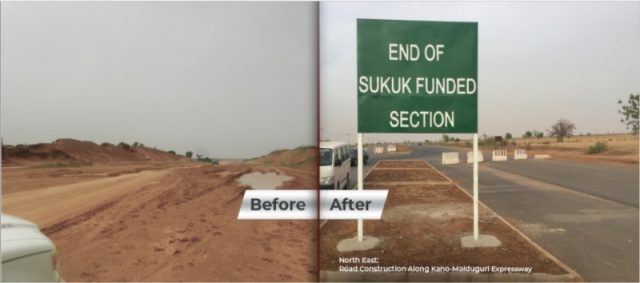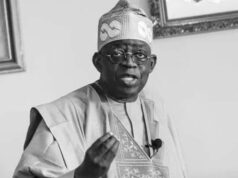…Government to continue driving growth in the country
…Nigerian Islamic-finance industry is estimated to have reached USD2.3 billion at end-2021
…Islamic banking, in Nigeria, is a niche but growing segment with its market share rising to 0.7% in 3Q20 (3Q19: 0.3%) and total assets of about USD732 million, according to the Islamic Financial Services Board
THUR 20 JAN, 2022-theGBJournal- The Islamic-finance industry in Nigeria is expected to continue its moderate growth trajectory in 2022-2023, says Fitch Ratings. Growth will be driven by top-down government support for the sector, sukuk issuance by the federal government, asset growth by newly-established Islamic banks, and enabling regulations.
The industry is, however, nascent and the key to cementing its market share is by addressing long-standing constraints, which include the limited bottom-up public demand for Islamic products, low awareness, and the still-developing regulatory and debt capital market infrastructure in Nigeria.
Market penetration is also constrained by the small capital base of Islamic banks, limited branch & digital banking network, inadequate fintech usage, limited product offering, lack of incentives for sukuk issuers, and limited skilled human capital. Demand is also impeded by segments of the public strongly opposing the government’s use of Islamic products.
However, we believe the long-term growth potential is positive, reflecting Nigeria’s large deficit funding needs and the government’s experience in issuing sukuk since 2017 to partially fund these gaps. Demographic factors of having the fifth-largest Muslim population globally, with Africa’s largest economy and a large unbanked population of about 60% also provide impetus for long-term growth.
The size of the Nigerian Islamic-finance industry is estimated to have reached USD2.3 billion at end-2021, with outstanding sukuk being the largest segment at 66%, followed by Islamic banks at 32% (total assets), and the remaining 2% between Islamic funds (total assets) and takaful (total contributions).
Sukuk instruments have been made part of the government’s debt management strategy for 2020-2023. In 2021, the Federal Government of Nigeria issued 10-year sukuk raising NGN250 billion (USD0.6 billion), its fourth issuance since 2017 with more than 3.5x subscription. In 2021, the country’s first corporate sukuk by Family Homes Funds and its first ‘green sukuk’ by OneWattSolar was issued.
Nigeria’s local sukuk market remains in its early stages of development, with its share of the global sukuk market low at 0.15% at end-2020, based on research by the International Islamic Financial Market. However, Nigeria’s sukuk market global share was the highest among African countries, ahead of Egypt (0.04%), Senegal (0.04%), and Morocco (0.02%). Local-currency sukuk issuance is expected to pick up in the medium term, as the sovereign seeks alternative funding sources and domestic investor appetite for sukuk as an alternative asset class increases.
Islamic banking, referred to as non-interest banking (NIB) in Nigeria, is a niche but growing segment with its market share rising to 0.7% in 3Q20 (3Q19: 0.3%) and total assets of about USD732 million, according to the Islamic Financial Services Board. The rising market share is stimulated by Central Bank of Nigeria (CBN) approving the establishment of a number of NIBs in the last few years. In 2021 and 2019, the CBN granted license to Lotus Bank Limited and TajBank Limited to operate as NIBs, which along with Jaiz Bank (B-/Stable) brings the number of full-fledged Islamic banks to three.
The number of NIBs is set to rise. In 2021, CBN granted approval-in-principle for Sterling Bank Plc to spin off its Islamic window into a standalone NIB. Fitch has a neutral outlook for Nigerian banks. Business volumes and earnings will continue their slow recovery in 2022, driven by moderate loan growth buoyed by gradually improving operating conditions. Fitch forecasts real GDP growth of 2.8% in 2022 compared with an estimated 2% in 2021 and minus 3% in 2020. These developments are expected to moderately support Islamic-banking growth in Nigeria.
The takaful and the Islamic funds management industry in Nigeria also remains underdeveloped with a domestic market share of less than 2%.
Twitter-@theGBJournal|Facebook-The Government and Business Journal|email: govandbusinessj@gmail.com| info@govbusinessjournal.ng










